Formula 1 is a sport littered with 'what ifs', as this season's title battle demonstrates. While Max Verstappen leads the Drivers' Championship by 12 points over Lewis Hamilton, Red Bull's Helmut Marko claims that Verstappen has "innocently" lost more than 50 points so far.
Let's look back over the 17 races so far this season, and identify where both Verstappen and Hamilton dropped the ball over the course of the year.
In the interests of not over-complicating things, this process will only refer to what Verstappen and Hamilton could have done differently themselves on track, as opposed to questioning how events might have unfolded in different strategic situations.
Bahrain
With what appeared to be the faster car, Verstappen and Red Bull lost the win after ceding track position during the pit-stops. A pole position and early lead was undone by Mercedes' aggressive undercut, but it was Verstappen's mistimed attack at the end of the race that really cost him points.
Using fresher rubber to catch Hamilton, Verstappen overtook at Turn 4, but ran too wide and over track limits. This meant he was forced to give back the place, and never got another opportunity. Given his advantage at that point of the race, waiting for a cleaner pass might have been the better choice.
Imola
Both drivers maximised their finishing positions, although Hamilton was fortunate that a mid-race red flag allowed him to get back on the lead lap, and begin a recovery drive to second place behind Verstappen.
Portugal
While a mistake from Verstappen early on allowed Hamilton to get back past him, the overall package of the Mercedes appeared slightly quicker than the Red Bull over the Portuguese Grand Prix.
As a result, it's fair to say that Hamilton's win – with Verstappen in second place – represents their best, although Verstappen lost out on the fastest lap point as a consequence of exceeding track limits on the final lap. As that's a point he could have held onto without the error, it's counted.
Spain
Both achieved their maximum in Spain, with Hamilton claiming victory after an aggressive strategy from Mercedes helped him to hunt down and pass Verstappen in the closing stages.
Monaco
As explained above, strategy doesn't really factor into this little experiment. So the fact that Hamilton's race could have been very different if he had emerged just in front of Sebastian Vettel doesn't really matter.
Both Verstappen and Hamilton maximised their results in Monte Carlo, with Hamilton off the pace in qualifying, and both he and Mercedes being uncharacteristically off the boil on Sunday. Hamilton could have finished even lower, had teammate Valtteri Bottas not retired from a podium place.
Azerbaijan
This is a particularly tricky one, given that both drivers encountered calamities in the closing stages of the race – one from external factors, one self-inflicted.
In an undramatic, parallel universe, Verstappen crossed the line to win in Azerbaijan, with Sergio Perez in second and Hamilton third.
But in our universe, Verstappen retired with five laps to go when his left-rear Pirelli exploded down the main straight. Upon the restart, Hamilton sprung into the lead, but made a crucial brake settings change on his wheel. As a result, he was left watching the field stream past when he sailed into the escape area at Turn 1.
Yet Hamilton wouldn't have made that same error had Verstappen's incident not reset the race in the first place.
So there are a few options here. One hypothetical is to have kept the race going after Verstappen's incident, under Safety Car, and then resumed. This would likely have resulted in a Hamilton win, due to Perez's ailing car. Another option would be to assume they would have finished first and third.
But as Race Control didn't choose the Safety Car option, and a mechanical issue did hit Red Bull and triggered the circumstances that cost Hamilton, it seems fairer to keep them level here. Verstappen should have had 25 or 26 points more (he had just set fastest lap), and Hamilton at least 15 points more, but mechanical issues do happen over a season.
France
No headaches with this race, as both drivers achieved their maximum. Strategy played a crucial role at Paul Ricard, with Mercedes coming out the loser on this occasion. Had they rolled the dice differently, or Hamilton been slightly more aggressive into the pit lane, the result could have been different. But it wasn't.
Styria
No particular dramas here either, with Verstappen winning the first race at the Red Bull Ring. Hamilton, in second, maximised his points haul by taking the fastest lap point too.
Austria
More of the same at the Austrian Grand Prix, with Verstappen sailing off into the distance to take another win. Hamilton finished in fourth, a victim of some floor damage he picked up going across the kerbs at the final corner.
Arguably, Hamilton could have finished in second had he not picked up that self-inflicted damage and, if we were to be extremely picky, one could say he should have finished second. But given the innocuous nature of how he sustained that damage, we'll let him off the hook and say he maximised the result that was possible on the day.
Britain
Next up in 2021's controversial slideshow is that hugely dramatic day at Silverstone. With Hamilton claiming the win and fastest lap, it certainly can't be argued that he lost anything. But Verstappen lost the majority of his championship lead in one fell swoop, as he turned into Copse and found a Mercedes was still there.
There's been endless debate about who was at fault, and that isn't the purpose of this article. The question mark is figuring out the possible points difference.
Assuming the collision hadn't happened, Hamilton wouldn't have incurred the penalty that forced him to fight back to the win. Instead, it would have been a much more straightforward Verstappen vs Hamilton battle at the front, with the Dutch driver initially leading.
How it would have gone from there is impossible to figure out. Given their speed, it's safe to assume that Verstappen would have finished second at the very least. Rather than assuming Verstappen could have achieved the maximum on that day, let's give him the bare minimum. Hamilton can hold onto the win and the fastest lap point, but we'll give Verstappen second place.
Hungary
Quite a similar scenario for Hungary as Silverstone, although Verstappen did actually manage to finish in the points after the first-lap melee.
Hamilton finished second and, arguably, should have won the race. The reason he didn't was due to a Mercedes strategy call not to pull him in at the end of the second formation lap, so that's no slight against Hamilton. But that call wouldn't have been necessary had the initial start not been abandoned...
Verstappen, who had climbed to second off the line with Bottas bogged down, was the innocent victim of the Finn getting his braking all wrong and triggering the multi-car pile-up that also claimed the McLarens, Perez, and Charles Leclerc.
As Pierre Gasly took the fastest lap point, let's leave Hamilton with his second place finish as he was blameless for all the on-track drama at the start. Had Verstappen survived Turn 1 unscathed, he would likely have won the race but, as this is a calculation of minimums, rather than maximums, let's give him third place, rather than ninth.
Belgium
Not much to say about Belgium, given that the race didn't happen. Had the race got underway, it's safe to assume that Hamilton would have quickly been in second place and ahead of George Russell.
It ended up being an easy 12.5 points for Verstappen (given that half points were awarded for the shortened event), which was really won for taking pole position and keeping it on the road behind the Safety Car.
Let's leave Verstappen with the points for the win, and elevate Hamilton to second place.
Netherlands
Maximised points for both drivers, with Verstappen romping home to victory in front of an ecstatic home crowd.
Consigned to second place, Hamilton took the fastest lap point as well. Not much else to say about this race...
Italy
Another very difficult race to rule on, given that the two drivers collided once again.
There's no doubt that Verstappen threw away points at Monza, having started from pole position and falling behind Daniel Ricciardo at the start.
Hamilton's own bad start in the Sprint Qualifying race also cost him dearly, as he fell down the starting order for the Grand Prix.
The pit-stop errors from Red Bull and Mercedes that put them together on track weren't either of the driver's faults, but the collision between the pair certainly did have a contribution from both. As at Silverstone, the goal here isn't to figure out or apportion blame for the clash, but to decipher what was lost.
It's a matter of opinion whether Verstappen threw away the win when he lost out to Ricciardo at the start, but he certainly gave up the chance of a podium.
Both Hamilton and Verstappen were behind Lando Norris at the time of their collision and, given the speed shown by McLaren that weekend, it seems fair to say that the minimum results would have been Hamilton in third and Verstappen in fourth.
Russia
An engine penalty took Verstappen out of contention for the race victory in Russia, but the results of both were as expected given their starting positions.
Hamilton won the race, with Norris taking the fastest lap point, while Verstappen recovered from the back to finish second. No particular extraneous circumstances to take into consideration in Sochi!
Turkey
An engine penalty for Hamilton compromised his race in Turkey, while Verstappen was powerless to stop Bottas from claiming the win.
Whereas Verstappen took the maximum that was available to him, Hamilton didn't. Even though this, fundamentally, came down to a strategy error, it was one of Hamilton's making as he overruled the calls from the pits to come in.
Given that Hamilton was racing with Perez at the time when the decision was made by Red Bull to bring the Mexican in, let's leave Perez with that final podium place.
As said before, this is about minimums, so Hamilton would likely have finished in fourth place, and with an extra two points at minimum had he listened to his pit crew.
United States
Neither driver can have any complaints about how the United States Grand Prix went, with both Verstappen and Hamilton claiming the maximum points available to them in the race.
With Verstappen winning due to Red Bull's aggressive strategy and some immense tyre preservation, Hamilton was left to claim second and the fastest lap point.
Conclusion
It's astonishing just how often both Verstappen and Hamilton have maximised what's available to them over the course of this season, with only minimal points lost at the vast majority of races.
The biggest losses have obviously been on the occasions where they've been involved in collisions.
Verstappen has clearly been the unluckier of the two drivers overall. If you were to include Azerbaijan's 'drama-free' result, had his tyre lasted another 10 minutes, the Dutchman could have had an extra 54 points to his name and almost have the title tucked away.
But 'what ifs' are a part of Formula 1, and most bad fortune balances itself out over a season. Verstappen got some of that bad luck repaid with Spa not getting underway, as well as Hamilton being a law unto himself in Turkey.
How many points could they have had?
| Race | Verstappen | Hamilton | Total |
|---|---|---|---|
| Bahrain | +7 | -7 | +7 (Verstappen) |
| Imola | 0 | 0 | +7 (Verstappen) |
| Portugal | -1 | 0 | +6 (Verstappen) |
| Spain | 0 | 0 | +6 (Verstappen) |
| Monaco | 0 | 0 | +6 (Verstappen) |
| Azerbaijan | 0 | 0 | +6 (Verstappen) |
| France | 0 | 0 | +6 (Verstappen) |
| Styria | 0 | 0 | +6 (Verstappen) |
| Austria | 0 | 0 | +6 (Verstappen) |
| Britain | +18 | 0 | +24 points (Verstappen) |
| Hungary | +13 | 0 | +37 points (Verstappen) |
| Belgium | 0 | +7 | +30 points (Verstappen) |
| Netherlands | 0 | 0 | +30 points (Verstappen) |
| Italy | +12 | +15 | +27 points (Verstappen) |
| Russia | 0 | 0 | +27 points (Verstappen) |
| Turkey | 0 | +2 | +29 points (Verstappen) |
| USA | 0 | 0 | +29 points (Verstappen) |
Don't miss out on any of the Formula 1 action thanks to this handy 2026 F1 calendar that can be easily loaded into your smartphone or PC.
Download the calenderMost read
In this article
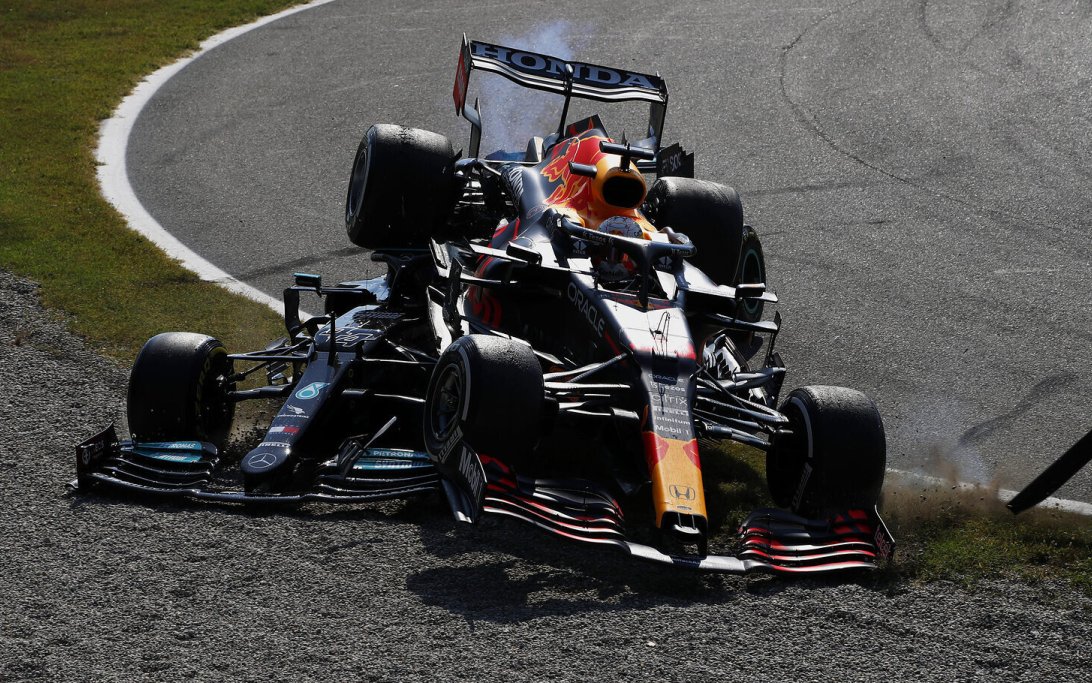
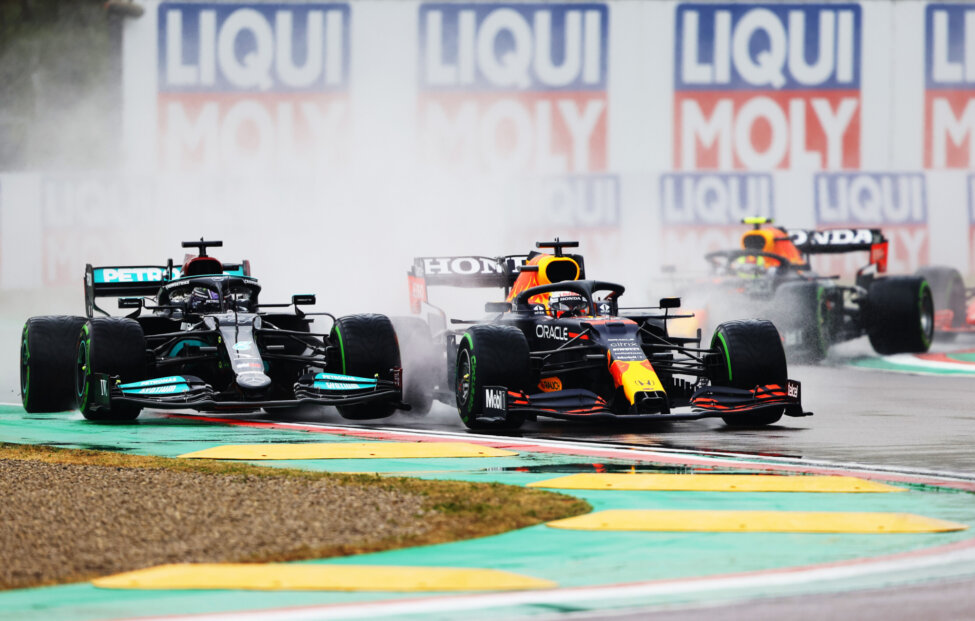
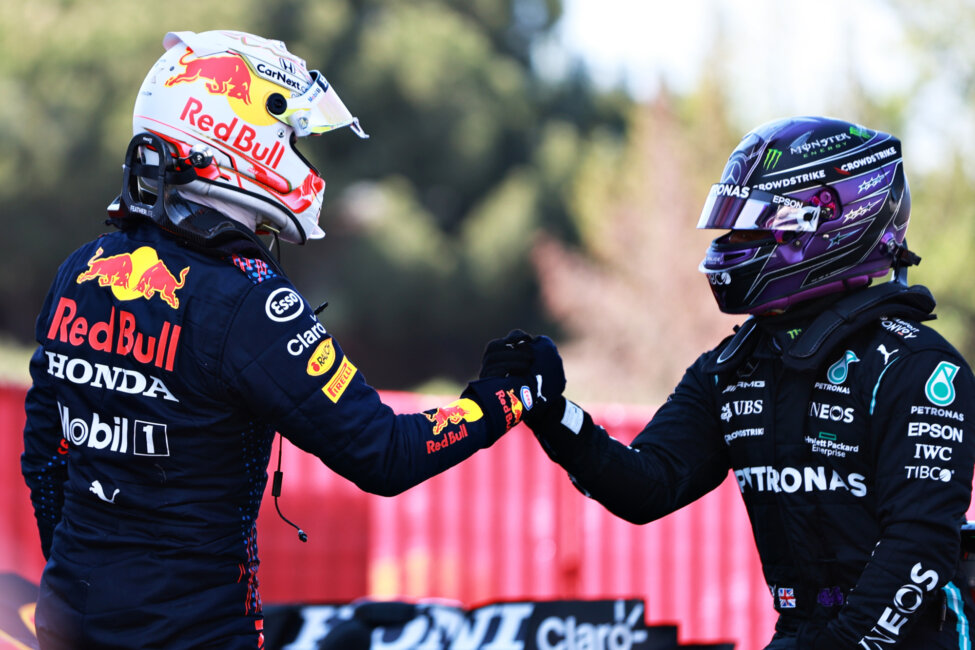
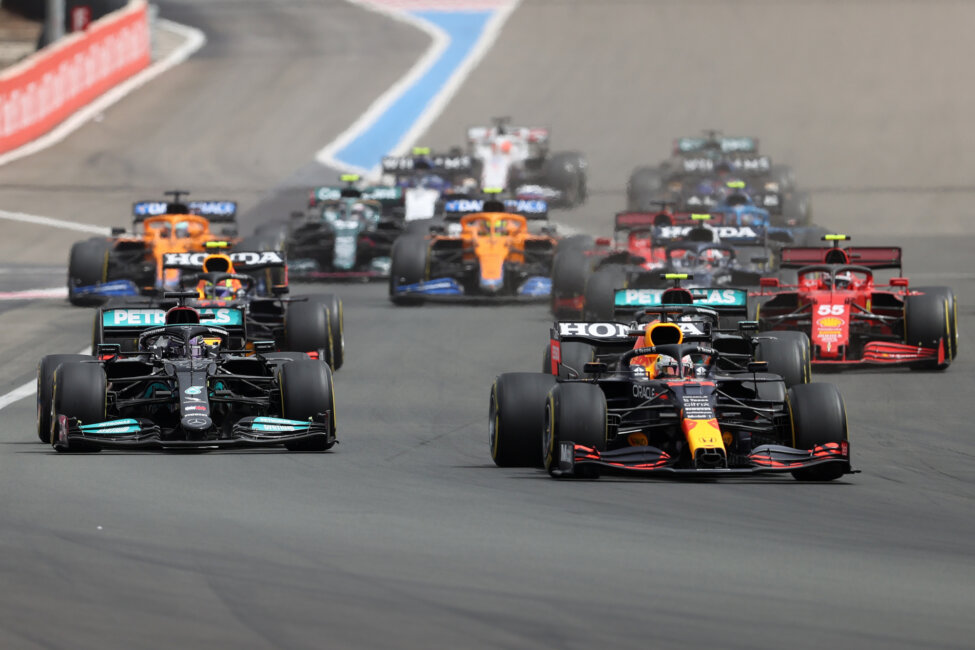
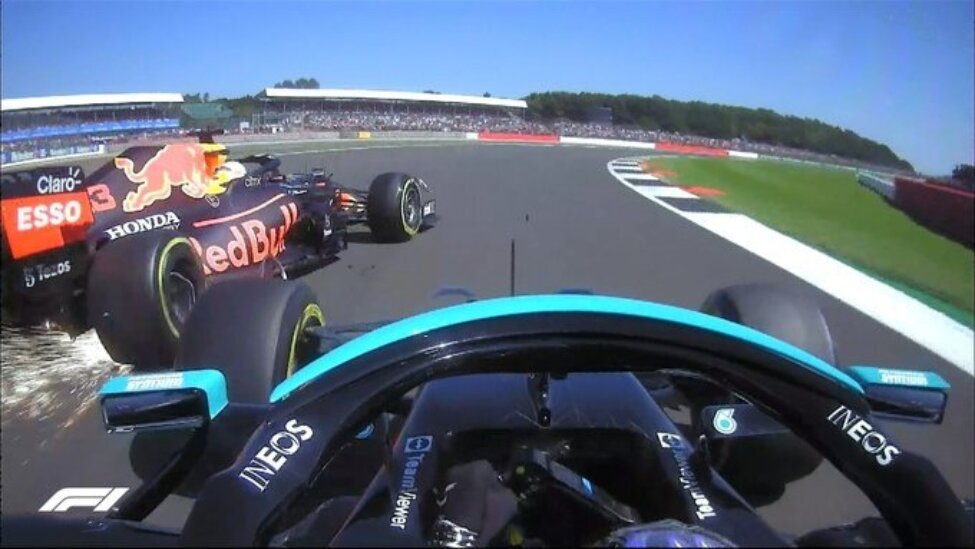
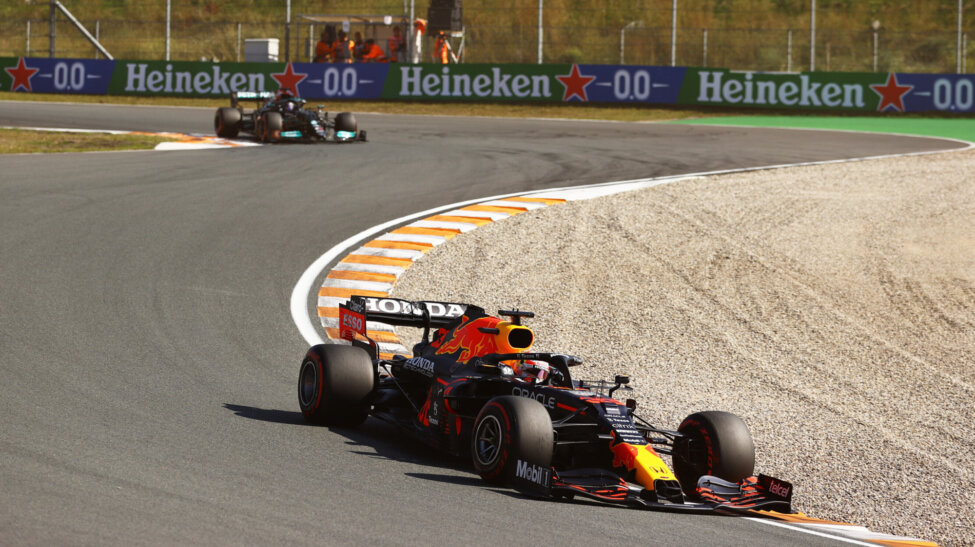
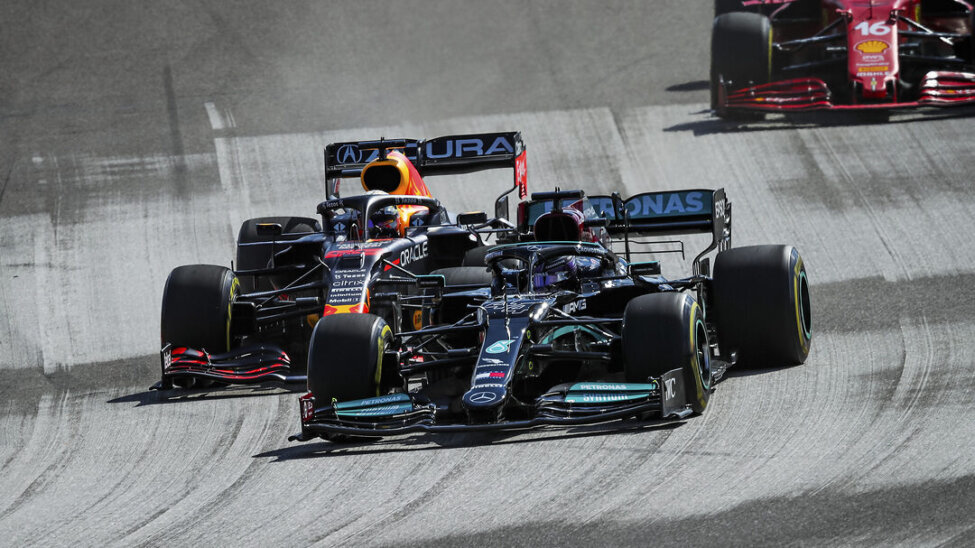
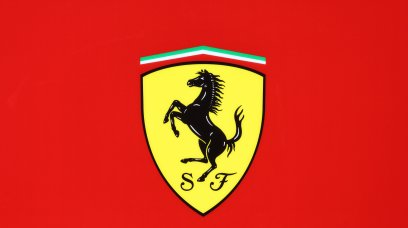
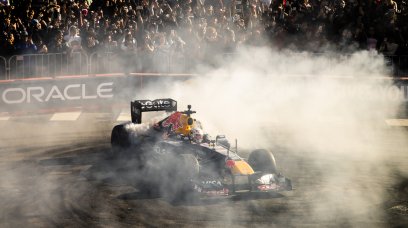
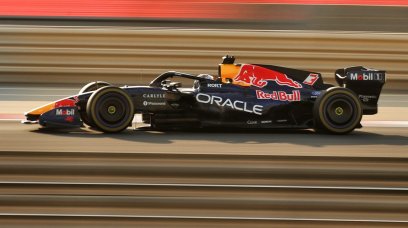


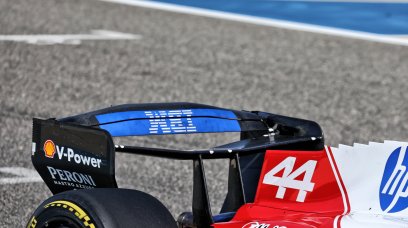
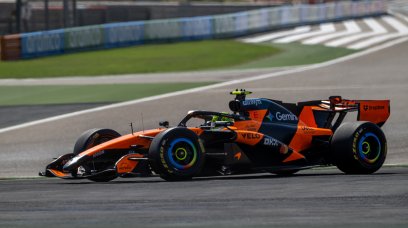

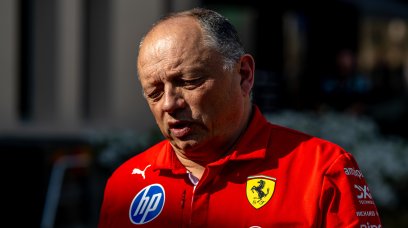
Join the conversation!